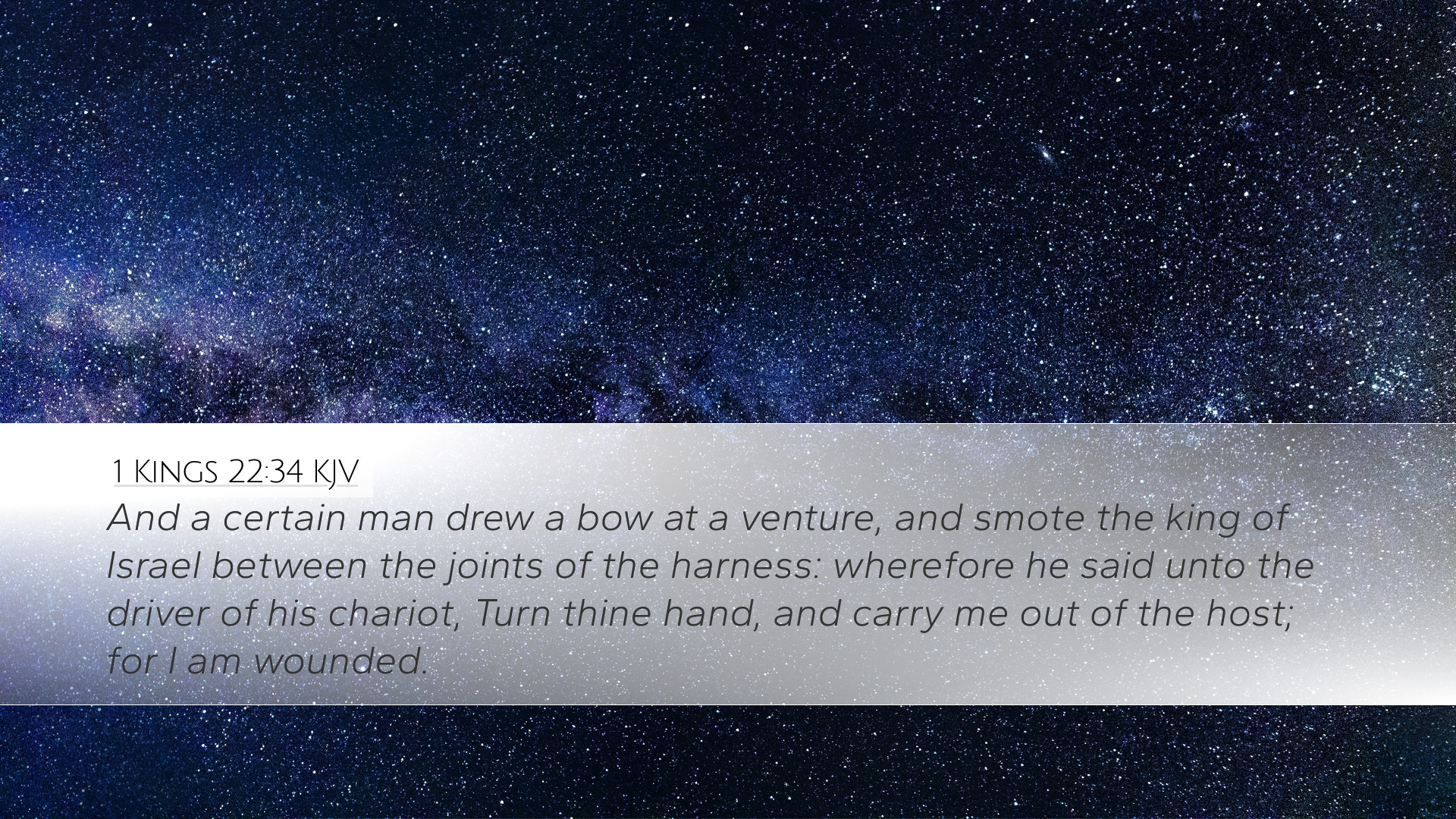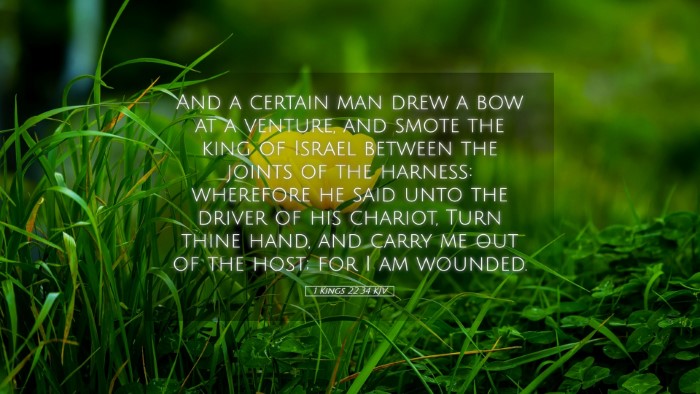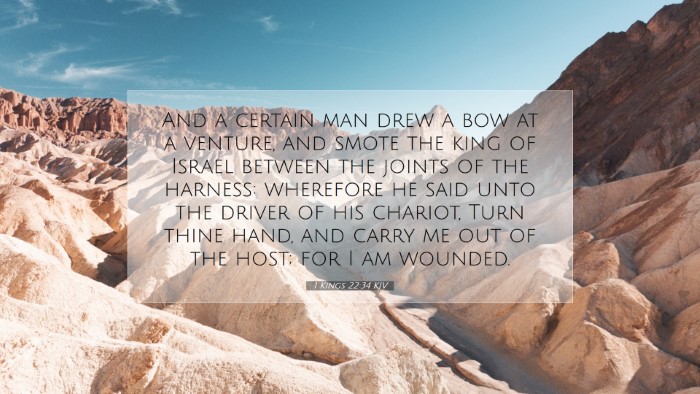Commentary on 1 Kings 22:34
Verse: 1 Kings 22:34 - "But a certain man drew his bow at random and struck the king of Israel between the joints of his armor. So he said to the driver of his chariot, 'Turn around and take me out of the battle, for I am wounded.'
Introduction
This verse captures a significant moment in the battle between the Israelites and the Arameans, highlighting themes of divine providence, the unpredictability of fate, and the inevitable consequences of human choices. The death of Ahab, the king of Israel, serves as a sobering reminder of the transient nature of power and the sovereignty of God in orchestrating events for His purposes.
Historical Context
The backdrop of this verse is the conflict between Ahab of Israel and Ben-Hadad of Aram. Prior to this encounter, prophetic warnings had been given about Ahab's demise due to his idolatrous ways and his failure to heed God's commandments. The setting serves to remind readers of the moral obligations leaders have, and the serious implications of their actions.
Commentary Insights
1. The Randomness of Events
Matthew Henry comments on the idea that the archer "drew his bow at random" emphasizes that human efforts are often subject to the unseen agency of God. While the archer acted without intention, God used even this seemingly careless act to fulfill his divine decree. This notion reinforces the belief that nothing occurs outside the will of God.
2. Symbolism in Armor and Wounding
Albert Barnes provides insight into the significance of the "joints of his armor." The armor symbolizes the protective measures taken by leaders against threats, yet despite these defenses, vulnerability exists. This detail illustrates that even the mightiest can fall by unforeseen circumstances. Ahab's injury is a metaphor of how pride and rebellion can lead to a ruler’s downfall despite earthly security.
3. Ahab’s Response
As noted by Adam Clarke, Ahab’s immediate reaction to his wound—requesting to withdraw from battle—reveals a moment of panic. Clarke suggests that this plea reflects a deeper realization that he was no longer in control, a poignant moment for a king who often acted arrogantly. His vulnerability becomes apparent as he acknowledges his mortality.
4. Divine Judgment and Consequences
Each commentator reflects on the theme of divine judgment evident in Ahab's fate. Matthew Henry links Ahab's downfall to his unrepentant nature and identity as an adversary of God. His fate serves as a grave warning about the consequences of leading a life counter to God's commandments. The randomness of the arrow striking Ahab is a reminder of the inescapable nature of divine retribution.
Theological Implications
- Divine Providence: This verse illustrates how God governs the course of history, often using unassuming and unexpected methods.
- Moral Responsibility: Leaders are held to a higher standard, and their choices can lead to significant consequences not only for themselves but for their people as well.
- Vulnerability of Power: Ahab’s story exemplifies the fragility of human authority and the harsh reality that even the strongest can fall due to their own folly.
Practical Applications
The insights drawn from this commentary on 1 Kings 22:34 provide essential lessons for modern readers:
- Understand the unpredictability of life and the necessity of humility before God’s sovereignty.
- Recognize the weight of leadership and the importance of leading with integrity and wisdom.
- Reflect on personal vulnerability and the call to maintain a posture of dependence on God rather than one's strength.
Conclusion
The narrative in 1 Kings 22:34 serves as a potent reminder of how God works through both the orchestrated and the chaotic intricacies of life. The fateful arrow that struck Ahab underscores the consequences of rebellion against divine authority, urging readers to consider their stance before God and the impact of their decisions in leadership.


